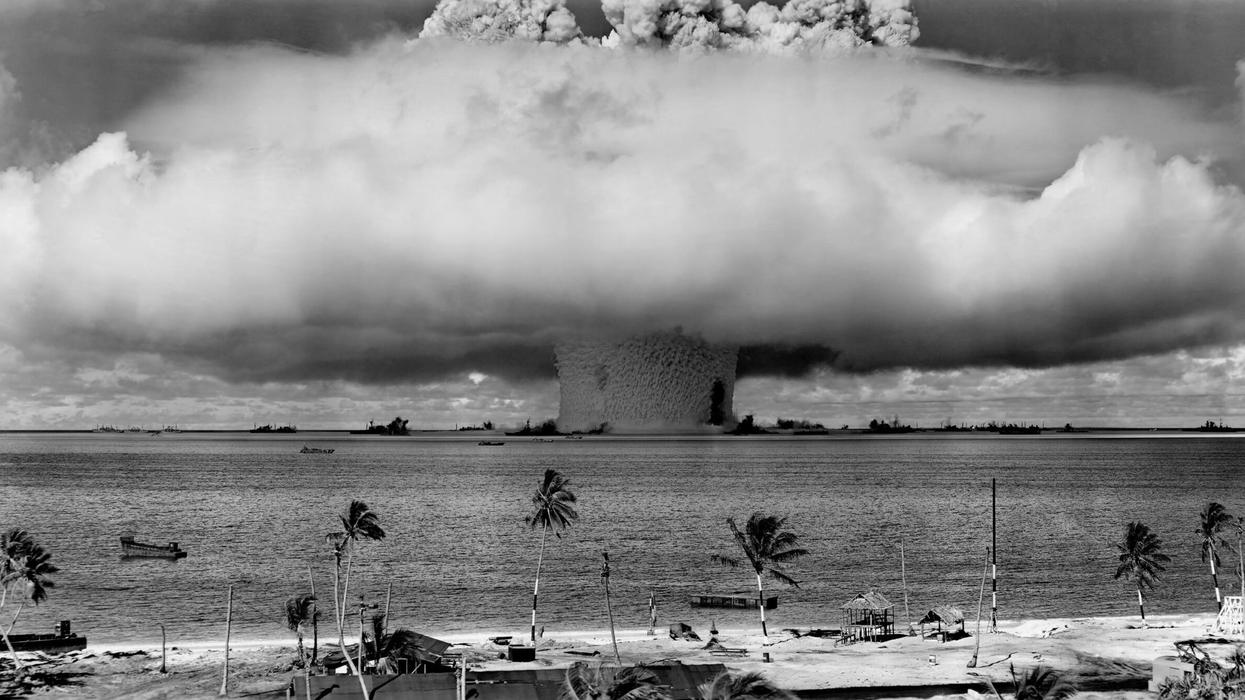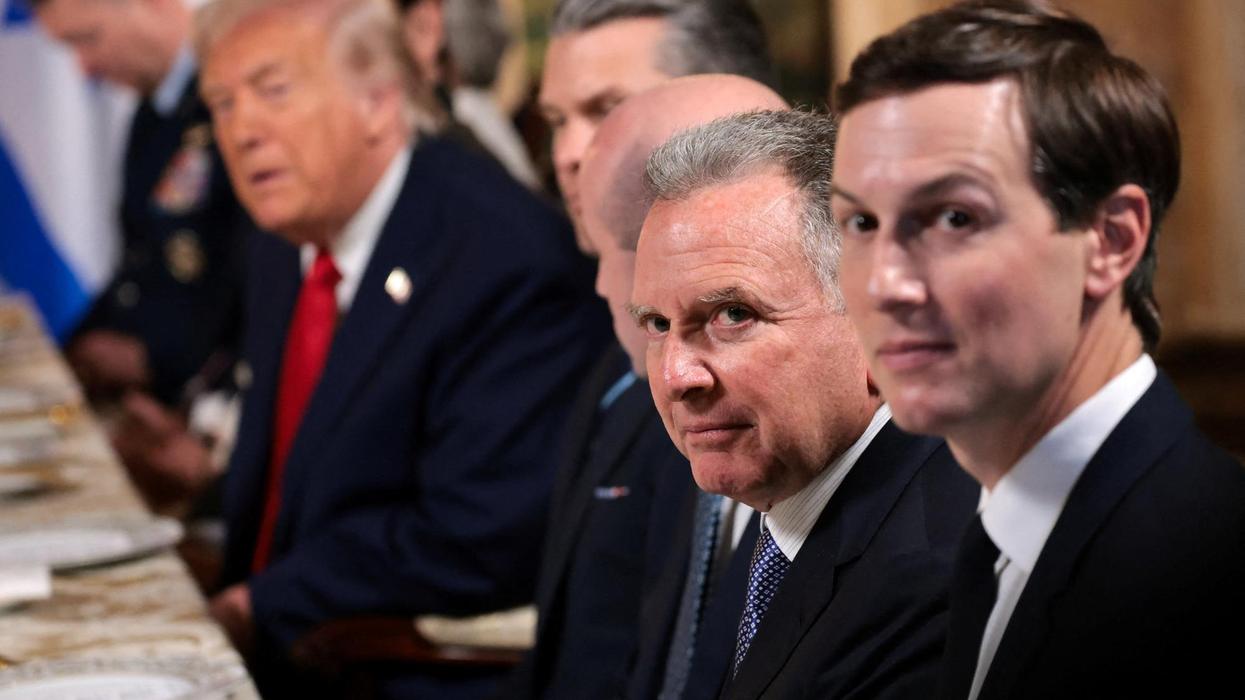In the latest edition of Foreign Affairs, the Quincy Institute’s Stephen Wertheim makes the case for a grand strategy rooted in restraint. This includes a constructive vision for China policy that breaks out of the numbing cycle of hollow affirmations and rhetorical critiques of a Cold War-like containment strategy. Most controversially, Wertheim calls for the United States to shift to a defensive force posture that forgoes the offensive capability to penetrate and strike the Chinese mainland.
If restrainers want to become a permanent and influential fixture of the foreign policy debate, then China must move to the center of their agenda. To do otherwise would be to guarantee that an issue which is quickly giving rise to a new foreign policy consensus, stronger and more bipartisan than anything seen since the so-called “war on terror,” will become the exclusive purview of those committed to confrontation, and ultimately a cudgel for those committed to primacy.
The political moment that has made Americans receptive to considerations of foreign policy beyond primacy and power will prove too fragile in a world primed for confrontation. Although a majority of Americans do not yet view China as a major threat, if the response to 9/11 and the rise of Donald Trump have affirmed anything, it is that the American id will always be prone to manipulation at the prospect of domination by or subjugation to a non-white power. Regardless, confrontation will so unify elites in Washington, longing for a return to normalcy and common purpose after the collapse of the post-Cold War policy consensus and amidst the upheavals caused by the Trump, and now potentially Sanders, revolutions, as to make it irresistible irrespective of the public’s ambivalence.
The world of confrontation will be an alienating, lonely, and hostile one for restrainers. They will be forced to advocate for their agenda from a position of weakness, constantly deflecting criticism that they are naïve to China’s threats to the free world, and unpatriotic for lacking the will to boldly confront them. Critiques of U.S. primacy will be coded as communist appeasement, equipping primacists with a potent new rhetorical tool to bolster their otherwise stale and tired arguments.
The ultimate casualty will be the restraint agenda. Confrontation will be used to delegitimize calls to reduce the bloated Pentagon budget, curtail the political influence of the Defense Department and defense contractors, prevent integration between the commercial sector and the military, and impose restrictions on executive power.
Restrainers should thus remain skeptical of those who frame restraint as a necessary first step in a larger pivot toward confrontation, or who coopt the language of restraint in service of confrontation. Not only is the former ignorant to, and the latter cynically aware of, the political incompatibility between restraint and confrontation, but both would see restrainers waste the opportunity afforded them by the flaws of today’s consensus.
A basic assumption undergirding confrontation is that deterrence is feasible, and compatible with other U.S. interests and constraints. If only the United States would adopt the right force structure, operational concept, and diplomatic strategy, China would find itself boxed-in, isolated, and unable to realize its interests. The Communist Party will eventually fall victim to its own internal contradictions, or will have to unilaterally shrink the scope of its ambitions.
But sustaining deterrence will prove far more illusory than the conventional wisdom assumes. China will always search for, and often find, a way to counter and erode any momentary U.S. advantages, triggering a corresponding retooling and recalibration from the United States. This constant jockeying for a favorable strategic position will precipitate an endless arms race, constant tests of resolve, and a redoubling of efforts to extract any and all advantage that is to be found in Asia. It will reinforce mutual suspicions, and strengthen the military industrial complex of both countries, making de-escalation all but impossible.
Nor can an escalatory spiral necessarily be avoided if the United States unilaterally shifts to a more defensive posture, as Wertheim and others have suggested. Present administrations will never be able to cleanly disassociate themselves from those past, and will always have to operate under the heavy, incriminating load of America’s prior transgressions. Nor can they guarantee that, in today’s polarized climate, future administrations will not suddenly reverse steps taken today. Even if the problem of credibility is overlooked, it is difficult to separate provocative, offensive measures from purely defensive ones in an area as geographically compact and operationally complex as Asia, especially when Taiwan remains a primary point of strategic contention.
Under perfect conditions, it is possible that the United States could find the resolve to uphold deterrence, and persecute the geopolitical competition that grows from it. Yet, any consideration of U.S. grand strategy would be foolish to ignore the likelihood of continued decay in America’s domestic political institutions and culture, and the escalating fiscal demands that will be put on the state as it adjusts to the disruptions brought by automation and technological change.
At a bare minimum, continued polarization and gridlock will prevent the formation of a cohesive and decisive national will. The United States is likely to lurch from administration to administration, reworking and reorienting American foreign and domestic policy in fits and starts, sapping it of the consistency, focus, and credibility that confrontation demands.
In short, the China debate is in need of a revolution in thinking. Unconstrained as they are by ideological commitments that will limit the scope of their ambitions, and equipped with an intuition and dexterity suited to the challenge, restrainers are the group best positioned to lead it.
To do so, restrainers will need to construct a vision for defense policy in Asia that moves beyond the unsustainable foundation of today’s security architecture, and tries to imagine an entirely new order oriented around a stable and manageable balance of power. Constructing such a balance will bring to bear a variety of tools, including arms control, diplomatic agreements, and mutually-negotiated force postures, and will require the United States to rethink, and consider making concessions on, a number of contentious issues, particularly the status of Taiwan.
Along with being the best guarantor for preventing war with China, such a vision would have the added benefit of alleviating pressures pushing both countries to compete beyond Asia, while creating the space for the United States to make the domestic investments and reforms needed to secure its long-term great power status.
There already exist several such models, long-advocated for by the likes of Michael Swaine, Charles Glaser, and Lyle Goldstein, that restrainers can build off of. But this can only be the beginning. Amassing the political power required to push such a revolutionary vision to the forefront of debate will require restrainers to move beyond questions of defense, and develop an integrated agenda responsive to the myriad of non-military challenges China poses.
If restrainers prove successful in this regard, they will find themselves with the legitimacy and political power required to bend the arch of U.S. foreign policy. Perhaps more importantly, they will be armed with an agenda that is the best and only hope of preventing the era of the forever war from giving way to the equally endless, wasteful, and unwinnable era of great power competition.
















